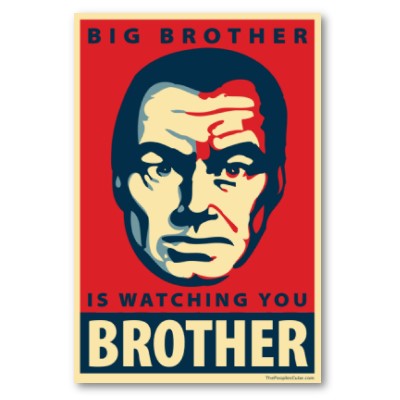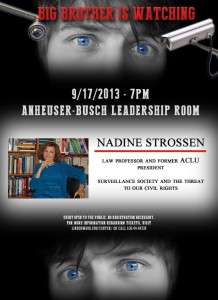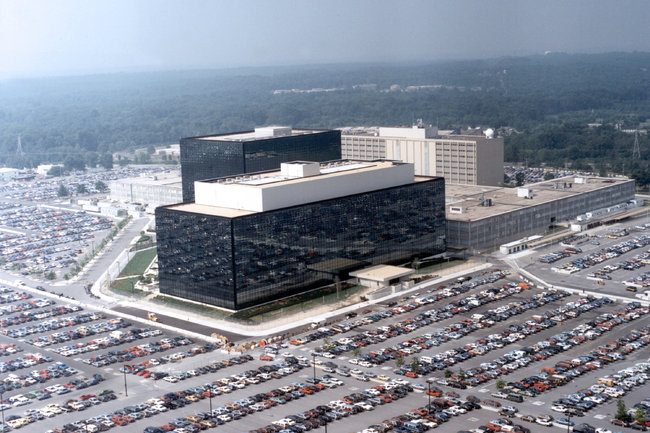Big Brother is Watching YOU

When the latest disclosures of former intelligence analyst Edward Snowden were made public on September 5th, the world was able to see that the U.S. and British intelligence agencies are capable of cracking the encryption designed to provide online privacy and security. The British newspaper The Guardian, The New York Times and ProPublica reported the case.
As the NY Times points out, encryption “guards global commerce and banking systems, protects sensitive data like trade secrets and medical records, and automatically secures the emails, web searches, internet chats and phone calls of Americans and others around the world.” In a collaborative effort with the British counterpart, the Government Communications Headquarters, the National Security Agency has attempted to break into protected traffic of popular Internet companies such as Google, Facebook or Yahoo. After a summer of seemingly unexpected and unprecedented revelations about how the N.S.A. and other agencies were eavesdropping its own people and its allies, this is considered only the latest chapter in a series of worrisome events that undermine privacy and fundamental liberties.
Since its inception in 2000, the highly classified program code-named Bullrun has allowed the N.S.A. to hack into computers of companies to snare messages before they were encrypted. In spite of losing a public battle to insert its own “back door” in all encryption in the 1990s, the N.S.A. employed the method regardless. Nadine Strossen, professor of Law at New York Law School, was not surprised by this. Having been an advocate for civil liberties all her life, she, unlike the general public, was aware about not only the existence of the surveillance program, but also about its extent. “What’s really dismaying to me is that every time you think you have a victory, you don’t really because the agencies just go ahead do it anyway“, Strossen said.
There are numerous other examples similar to Bullrun that show how the N.S.A. is apparently not subject of adequate scrutiny by the government and seems to play by its own rules. In the aforementioned NY Times article, cryptographer Paul Kocher recalls how the N.S.A. “lost the heated national debate in the 1990s about inserting into all encryption a government back door called the Clipper Chip”. Although the use of the Clipper Chip was defeated, the N.S.A. clandestinely availed itself of the tool anyway. In 2002, the Bush administration initiated a program called Total Information Awareness, or T.I.A., which received a considerable amount of press in the wake of 9/11. According to a NY Times article from 2002, the underlying idea of the T.I.A. program is that “the best way to catch terrorists is to allow federal agencies to share information about American citizens and aliens that is currently stored in separate databases.” T.M.I. was a trailblazer of the massive domestic surveillance scheme called PRISM, which remained secret until early June this year, when information about the program, leaked by whistleblower Edward Snowden, was published by a number of media.
When the N.S.A. was founded 60 years ago, encryption was an obscure technology. Now that we are entering a “golden age of spying”, it has become “ubiquitous”, cryptograph Kocher declares. “Today they are conducting instant, total invasion of privacy with limited effort.”
In a statement, the American Civil Liberties Union said the actions will “further erode not only the United States’ reputation as a global champion of civil liberties and privacy but the economic competitiveness of its largest companies.”
So why were people surprised and outraged when they heard about the data mining program this summer? Strossen believes that the government doesn’t make it easy for us to find out. “The information flow between the people and the government is exactly the opposite of what it should be. We should know what our government is doing but we don’t because of undue secrecy and they shouldn’t know what we do but they do because of undue surveillance.”
Strossen also believes that the lack of knowledge has a lot to do with people not being aware of events in general and the fact that both the private sector and government have hidden information about the extent to which they are getting information. “At worst”, she denunciates, “they have outright lied to us”. When Director of National Intelligence James R. Clapper was asked in a hearing in the U.S. Senate earlier this year whether the N.S.A. was collecting data on millions of Americans, he replied: “not wittingly”.
Strossen, who served as president of the A.C.L.U. for 18 years, underscores the importance of civil liberties in a democratic society. “Without fundamental freedoms, in particular speech, thought, press, and association, which are all 1st amendment freedoms, we would not be able to advocate for any other right, we wouldn’t have access to information, we couldn’t communicate about our government and we couldn’t criticize it.” In other words: We wouldn’t have a functioning democracy.
Another worrisome development is how most people seem to be more concerned by surveillance and data mining by the private sector than they are by government. A September 5th survey by the Pew Research Center found out that internet users “are more intent on trying to mask their personal information from hackers, advertisers, friends and family members than they are trying to avoid observation by the government.”
Strossen, who has more than 250 published works, attributes this trend “to a believe or even hope on the part of most people that if the government is getting information it’s to protect me from terrorist attacks, whereas if the private sector is getting it, it’s just so they can market to me and I’m not interested in that.”
The latest revelations, however, clearly show how getting information from private companies is a vital part of intelligence agencies’ strategy. Although major tech firms like Microsoft and Google insist that they “provide user data to government only in accordance with the law”, the classified documents indicate that the agency’s success depends on the collaboration with the internet companies. According to one of the documents leaked by Snowden, who was granted temporary asylum in Russia after he had spent over one month at a Moscow airport, the N.S.A. spends more than $250 million a year on a project that allows it to “actively engage the U.S. and foreign IT industries to covertly influence and/or overtly leverage their commercial products’ designs” to make them “exploitable”.
Amid these alarming developments, Strossen insisted that the state of our civil liberties when it comes to surveillance is actually better now that the surreptitious proceedings have been confirmed. After this summer’s disclosures, one could think that surveillance has become worse over the last ten years. In the light of the fact that the eavesdropping has been going on for at least a decade, however, this doesn’t seem to be the case. Strossen says that although it has been “really bad, at least since 9/11”, at least it didn’t get worse. “The fact that we know about it thanks to whistleblowers such as Snowden is actually a big improvement.”
„To me, Snowden is a patriotic hero“, Strossen says, adding that she feels “much more encouraged today” than she was prior to the revelations.
What’s more, the Pew Research Center survey revealed that 86 percent of people surveyed have taken steps to remove or mask their digital footprints, while 55 percent say that they are worried about information available about them online, a figure that was only at 33 percent in 2009.
In spite of most people being relatively passive, the civil libertarian says that “there has been an amazing amount of uproar and criticism”. Moreover, quite a few people have “signed letters of protests and petitions.” The A.C.L.U. and other organizations have not only been gathering signatures online, but they have also been encouraging people to communicate with members of Congress, which led to a recent Congressional vote to cut back on government’s authority, which came very close to passing.
Strossen strongly believes that the government should strengthen whistleblower protection. Guarding journalists who are under attack is something she calls “essential”, because “if we do not have the basic information then there is no way we can fight back at any level.” Apart from that, Strossen supports several bills, which are pending in Congress right now, that cut back on the government’s power. She is also a fierce proponent of revising and reforming the Foreign Intelligence Surveillance Act, which became effective in 1978. Generally speaking, the activist argues that we need reforms that would “bring the law back into line with the 4th Amendment.”
Strossen, who has received Honorary Doctor of Law Degrees from six different universities and colleges, claims that there is no evidence that the N.S.A.’s “extraordinary new powers” have been “necessary or effective” in fighting terrorism. Her and other experts and authorities call the surveillance program “a colossal waste of money” and the data mining approach “junk science”. Furthermore, she believes that with congressional oversight and judicial review it is possible to channel the government’s resources more effectively. “We’re burying any potentially relevant leads in data that nobody has been able to search through” Strossen says, adding that the “problem is not lack of information but lack of ability to analyze and coordinate information.”
Recent Posts
 Deutsche Welle – German bank blacklist of Yemeni nationals widensbenjamin - 02 May
Deutsche Welle – German bank blacklist of Yemeni nationals widensbenjamin - 02 May Deutsche Welle – The future of driving is (almost) herebenjamin - 02 May
Deutsche Welle – The future of driving is (almost) herebenjamin - 02 May A Reading Guide to the Accountability of Humanitarian Aidbenjamin - 02 December
A Reading Guide to the Accountability of Humanitarian Aidbenjamin - 02 December



